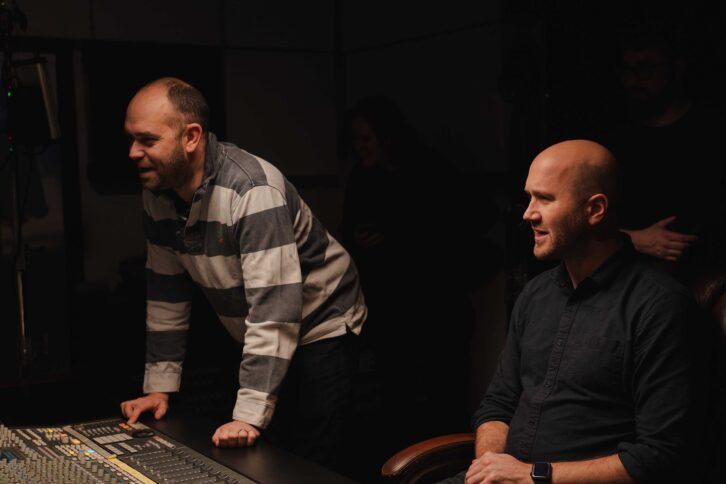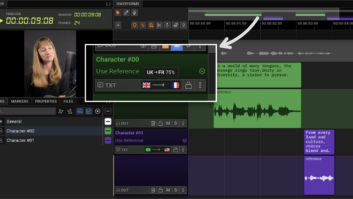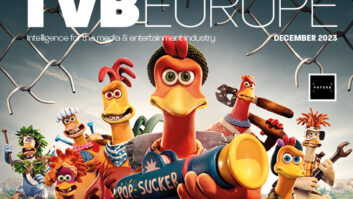Synthetic media doesn’t exactly have a stellar reputation and at the forefront of this notoriety are deepfakes. These creations have become a prominent face of synthetic media, capturing significant attention due to their involvement in unethical activities. From generating explicit celebrity content to revenge porn, propagating false information, perpetrating hoaxes, to committing financial fraud, deepfakes have sadly showcased the darker side of this technology.
One film that was the antidote to the above is Gerry Anderson: A Life Uncharted, in which the Thunderbirds creator was “brought back to life” using the groundbreaking technology.
Over six decades, Anderson crafted iconic TV series, winning hearts globally. In a homage to this TV and film pioneer, the film leverages rich audio archives and AI deepfake technology, presenting his narrative in his own voice and image. It was the brainchild of Benjamin Field and Anderson’s son, Jamie.
“I think synthetic media has a particularly bad reputation and that’s because people are trying to exploit it in order to generate new content and expedite the process,” Field says. “I think that could be potentially deeply damaging to the industry and audiences.”
This sounds like a very unusual way to start the conversation, especially when he’s just announced he’s going into business with Anderson to forge Deep Fusion Films, a company dedicated to making content using synthetic media.

“I think there’s a very positive angle here. Creatively, if you start from a good moral and ethical perspective, then the tech becomes accepted, nobody gets hurt, more opportunities grow and the production process can flourish,” Field explains. “That’s our starting position and we want to be leading that creative and ethical conversation. I want to make sure the creative process doesn’t start screwing people over just because there’s a new toy to play with, and this seems to be resonating with a lot of people.”
One of Deep Fusion Films’ first projects, which Field and Anderson have been working on since August is I Am Jenny, a film about Jenny Terranova, a 64-year-old from Cheltenham who was diagnosed with Huntington’s Disease 29 years ago. Jenny has been unable to speak for the last six years and in the film, Field and Anderson give her back her voice. Working with vocal replication specialist ElevenLabs, whose technology will learn what Jenny’s voice used to be like from old family DVDs, a synthetic simulation allows Jenny to “read out” excerpts of her journal that she wrote in the years following her diagnosis.
“This blend of technology and human stories that is shown in I Am Jenny is exactly what we have been so keen to work on as Deep Fusion Films,” explains Field. “The use of technology has been signed off by Jenny’s family and is the perfect harmony of tech and people. It’s not just being used for the sake of technology, it really enhances the film and makes it more immersive, while being quite emotional.”
Industry-wide, the ethical debate is very prominent, and Field says Deep Fusion Films is in a position where it can have a conversation with a broadcaster because of the things that he’s done in the past, such as being aligned with the actor’s union Equity and being part of the PACT working group.
“It means I can go to people and say this is the stance you need to take if you want to use synthetic media in production,” Field adds. “I recently walked into a broadcaster and they suggested two shows to me that they wanted to make. One of them I turned down flat because it wasn’t ethical in any way. It just becomes meat puppetry. The other one was something we’d been working on for a long time. It was using AI to provide a new perspective on something that pre-existed. One of the key points in the Writers Guild of America strikes is AI and image rights – actors not getting adequately paid for their ‘work’, whether they consented to it or not.”
Deep Fusion Films is having conversations with agents now where it has the ethical stance that allows agents and performers to have their rights managed in performance through digital media.
“We’ve already started to manufacture those opportunities by being ethically minded,” Field explains. “For instance, one of the conversations we’re having is about what we’re calling Legacy Voices – and here I think there’s an important distinction to be made between performance and voice. We’re at no point saying we can recreate a performance of someone who can no longer perform, for whatever reason. A performance is nuanced, it’s about soul, interpretation and subtext and lived experience. However, what we can do is recreate voices and what we’re putting in place is a management system, where a proportion of any fees earned through that goes to the performer or their estate. Some of it will go to the management system because there are costs, whilst the rest will go into a school or agency that trains performers. We want to keep the human connection and not lose that skillset. Everybody wins and nobody gets screwed over.”
Looking ahead, Field does envisage a time when films could contain a cast of AI-created actors. However, he says they will always have to have human intervention.
“There are lots of situations where outwardly something appears to have been completely AI-generated, but it’s never the case,” he adds. “Someone recently posted a Nike advert on LinkedIn claiming it was all AI. But who wrote it, edited it, and came up with the idea? Whoever did used tools that would have had a human involvement in every step. For this to exist in the real world, Nike would have to sign off on the idea of just using AI to create marketing collateral and which company of that stature is going to trust output with no human intervention, be it through Photoshop or Runway? There’s too much at stake.”
Whilst Field isn’t at liberty to speak too much about the technology his new company will use, he said that partnering with vocal replication specialist, ElevenLabs was a straightforward decision to make. “We trust it because of its positioning – it has its own ethical lawyer and guide.”
That’s a good start.
Deep Fusion Films is officially being launched at Mipcom, where Field will speak on ethics and creativity at the Unlocking AI Summit.







